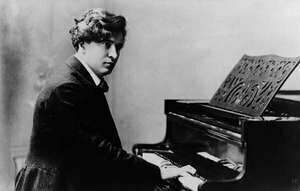
Ferruccio Busoni © cdn.britannica.com
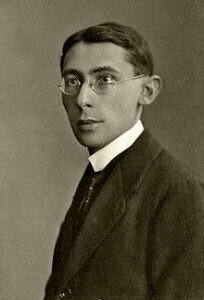
Hans Gál © Wikipedia
Ferruccio Busoni’s Piano Concerto is a substantial work which lasts around an hour. It calls for large forces – a choir as well as a big orchestra – which may be why it is rarely performed.
Ferruccio Busoni: Piano Concerto, Op. 39 (Roberto Cappello, piano; Luca Marenzio Choir; Rome Symphony Orchestra; Francesco La Vecchia, cond.)
Hans Gál’s Concerto for Piano & Orchestra was recently recorded by British pianist Sarah Beth Briggs with conductor Kenneth Woods. This large-scale concerto has everything you could wish for – dramatic interplay between soloist and orchestra, virtuosity and sweeping romantic phrases. And if you like Brahms, you’ll enjoy this.
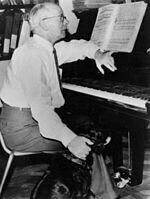
Erik Chisholm
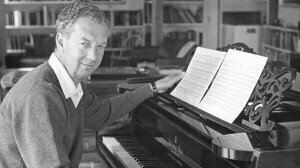
Benjamin Britten © www.listenmusicculture.com
Benjamin Britten: Piano Concerto, Op. 13 (Sviatoslav Richter, piano; English Chamber Orchestra; Benjamin Britten, cond.)
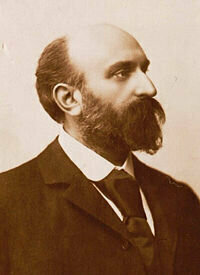
Ernest Chausson
Ernest Chausson: Concerto for Violin, Piano and String Quartet in D Major, Op. 21 (Vladimir Spivakov, violin; Hélène Mercier, piano; Arkadi Fouter, violin; Alexei Lundine, violin; Igor Souliga, viola; Mikhail Milman, cello)
Erich Wolfgang Korngold – Piano Concerto for the left hand. Written for Paul Wittgenstein (who lost his right arm in the First World War and for whom Ravel wrote his left hand concerto), this single-movement concerto is full of harmonic imagination and contrasting moods.
Other rarely-heard piano concertos worth investigating:
Moritz Moszkowski: Piano Concerto in E major (Joseph Moog, piano; German Radio Saarbrücken-Kaiserslautern Philharmonic Orchestra; Nicholas Milton, cond.)
Charles Villiers Stanford: Piano Concerto in C minor (Finghin Collins, piano; RTÉ Concert Orchestra; Kenneth Montgomery, cond.)
Ralph Vaughan Williams: Piano Concerto in C major (Ashley Wass, piano; Royal Liverpool Philharmonic Orchestra; James Judd, cond.)
Nicolai Medtner: Piano Concerto No. 2 in C minor (Konstantin Scherbakov, piano; Moscow Symphony Orchestra; Igor Golovschin, cond.)
Ernő Dohnányi: Piano Concerto No. 1 in E minor (Howard Shelley, piano; BBC Philharmonic Orchestra; Matthias Bamert, cond.)
Alexander Konstantinovich Glazunov: Piano Concerto in F minor (Severin von Eckardstein, piano; Belgium National Orchestra; Walter Weller, cond.)
Antonín Dvořák: Piano Concerto in G minor (Pierre-Laurent Aimard, piano; Royal Concertgebouw Orchestra; Nikolaus Harnoncourt, cond.)
Adolf von Henselt: Piano Concerto in F minor (Michael Ponti, piano; Philharmonia Hungarica; Othmar Mága, cond.)
Henry Litolff: Concerto Symphonique No. 4 (Cristina Ortiz, piano; Royal Philharmonic Orchestra; Moshe Atzmon, cond.)

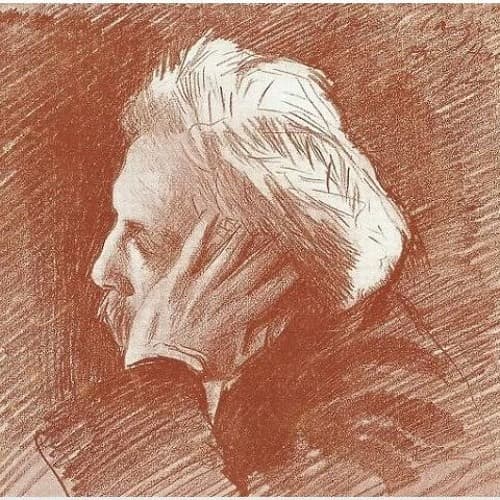
Thanks for these suggestions
Back, I think, in the mid-to-late 1960s, at a time when Leonard Bernstein and others were promoting the works of Mahler, Ives and Bruckner to classical audiences, either Bernstein or radio classical music host Karl Haas advanced the cause of a piano concerto composed by a little-known composer. The work was recorded — (back then, it was on a 33-1/3 RPM long-playing record). I purchased that record — but years ago gave all my LP records away. Would anyone out there know whose work that might be? Sorry, I can’t give you more to go on than that. I’ve gone through a number of Internet sites (which I “Googled” in as “piano concerto from little-known composers”) but none of the names any of those sites brings up rings a bell.
The Raff Concerto is my first choice among piano concertos excluded from the “final exam” repertoire. Beautifully written. Those who study this score will notice that all the material is developed from a single motive and its inversion presented at the beginning of the first movement. Each movement features some passages in double counterpoint. Yet for all the “learning” the music never sounds pedantic. Is full of lush melodies and fleet-fingered piano writing. There is a perfect balance of piano and orchestra. This is not one of those titanic struggles between soloist and orchestra (Brahms, Henselt, Rubinstein, Rachmaninoff) nor between a dominating piano over a thinly scored, subservient orchestra (Chopin, Paganini (violin)). The Raff concerto was a favorite of many pianists in its time, most notably Hans von Bulow who gave the first performance. Enormously influential, it looks both to the past (Beethoven – developmental technique) and the future (Rachmaninoff 3rd Concerto – unison writing soloist and orchestra, Prokofiev 3rd – brilliant unison passagework for piano in the finale, Ravel G Major – divertimento character). This is among Raff’s best known scores, coming from the height of his popularity in the decade of the 1870s. However, the Mount Everest of his total instrumental production is in my opinion the two Piano Quartets, Op.202 which are almost concerto-like or perhaps symphonic in character. Music like this is proof that Raff is here to stay. Definitely worth exploring.
Thanks Paul.
In my senior most years i spend much time discovering music I do not know as well as reruns of what I do know from UTube at then kitchen table. This is enlightening. jimk
how about Medtner’s 3 piano concertos? number belongs to the best in the repertoire i.m.o.